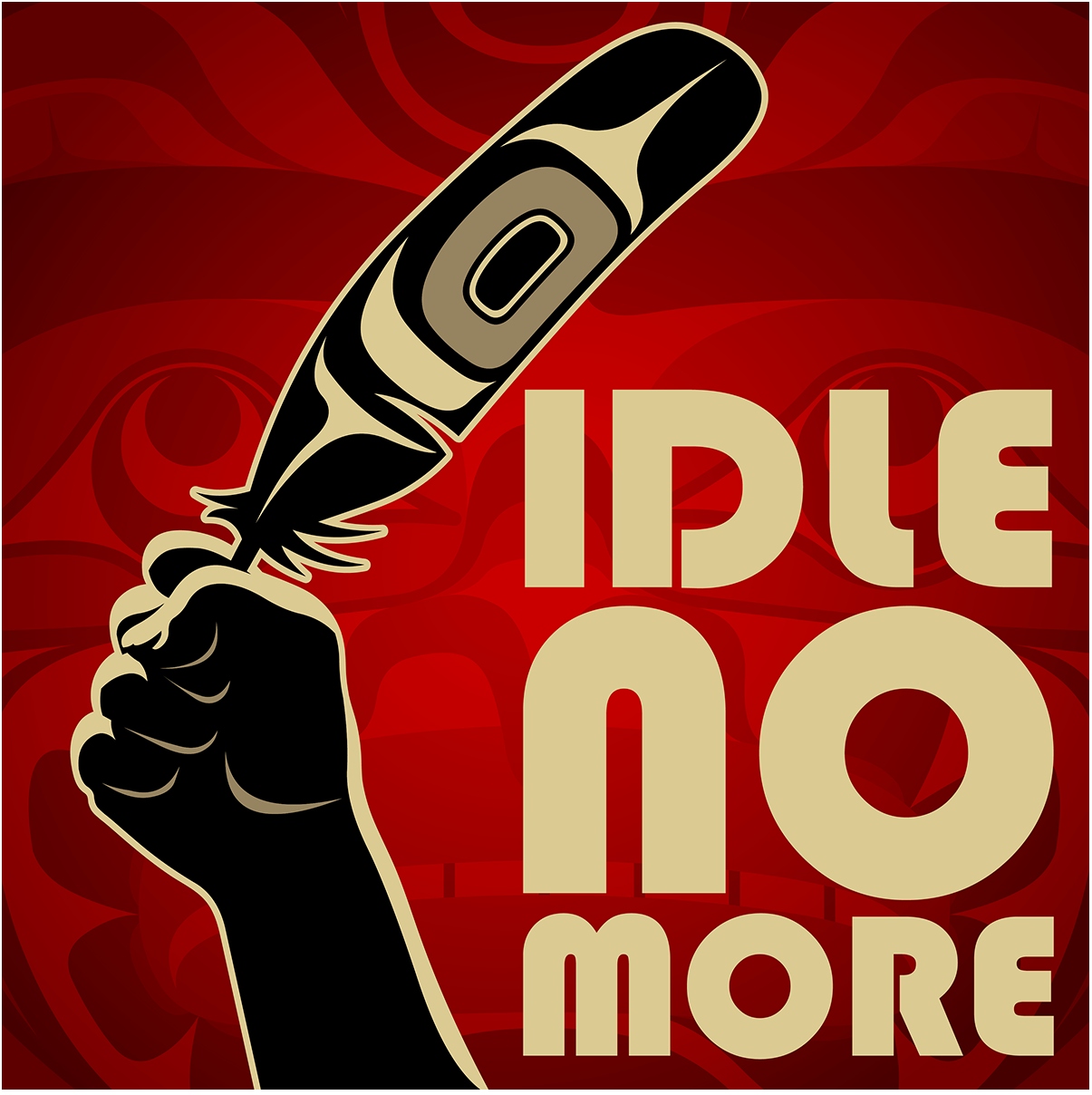Indigenous and Native Organizing: A Very Basic Introduction
August 25, 2013
EMEAC decided that it was important to really educate ourselves on Native and Indigenous organizing as it pertains to the environmental justice movement.
While we can not possibly do justice to the entire history of Indigenous and Native organizing with just one little post, we hope that it provides enough of an introduction that readers are able to google terms or check out further reading material and begin their own process of education!
Without a doubt, one of the most important terms to know related to Indigenous and Native organizing is "sovereignty." In the US, tribal peoples have a different relationship to the government than other communities of color. Because tribes were legally negotiated with by the US government during the Indian Wars era (signing treaties, recognized as conquered nations, etc), tribes in the US are generally understood as "domestic dependent nations." In general, this means that to a certain extent, tribes have the right to decide how their land/resources will be used, who the people of their tribe are, and how law enforcement will happen on their land.
Of course, sovereignty sounds like fairly straightforward common sense, but because the US has never officially stopped needing the resources that tribal peoples have on their lands, "sovereignty" and what it actually means has been subjected to painfully long court battles. Why do tribal courts have the right to enforce tribal laws? Why does the treaty from 100 years ago give a particular tribe ultimate say over what happens to the water on their land? The court system largely answers these questions, but generally has no authority to enforce the outcomes. This means that very often outcomes that are favorable to tribes very often aren't enforced or followed through on.
At the same time, the legal relationship with the US that tribes have allowed for what many call "special privileges" (although it should be noted that genocide was the price tribal peoples paid for those so called "privileges"). But while many non-natives ask why tribal people get to hunt out of season, why they get casinos, or why they get to go to college for "free", sovereignty is something that also protects non-Natives as well, in ways that far far outweigh the supposed "special privileges" that only tribal peoples get.
For example, in many treaties that tribes negotiated, they are ensured the right to hunt or graze on tribal land (whether or not they control/own the land itself). What this has meant is while tribes may not have express control over the land, they have the right to land that has game to hunt on it. That distinction may seem insignificant, but when mining companies were trying to take over much of the Ojibwe's ceded land during the "fishing wars" back in the 80s, the tribe was able to successfully argue against mines based on how harmful the mines would be to the land. If the lands are completely devastated by mining, there will be no game to hunt, and the US would be held liable. The argument proved so successful in a state that is traditionally pro-mining but ALSO pro-hunting, that the Ojibwe wound up gaining support from people who had started off protesting the Ojibwe's "special protections" AND winning the battle against the mining corporations.
You see a very similar situation going on with today's Idle No More movement. Although the original movement began in Canada with the First Nations peoples, the fight they were putting up was very similar to the fight of the Ojibwe. After a series of laws were passed that would've affected tribal peoples' right to water access (and horribly polluting and harming the water in the process), tribal peoples organized around "Indigenous Ways of Knowing rooted in Indigenous Sovereignty to protect water, air, land and all creation for future generations."
Idle No More has since expanded and become a world wide movement--but it's roots throughout the world remain grounded in the principles of sovereignty and as such, the principles of generational land protection. Another action involved First Nations from Manitoba serving eviction notices to mining corporations that were on their land. Idle No More groups have also been very vocal in their opposition to tar sands, fracking and oil pipe lines being built and they have used sovereignty as a way to fight these harmful practices.
Tribal sovereignty is a hugely complex subject. There are many cases in court centering on tribal sovereignty that have been going on for decades. As stated at the beginning of this post, one single little blog post will not even begin to uncover the many layers around sovereignty. But it is an extremely important concept for non-Natives to understand. If we don't, we stand in danger of siding with the narratives around "special privileges," rather than with the reality of justice.
More reading:
Andrea Smith: Conquest: Sexual Violence and American Indian Genocide
Vine Deloria: The Nations Within: The Past and Future of American Indian Sovereignty
The Supreme Court Strikes a Hard Blow to Tribal Sovereignty in Adoption Case
Cherokee Nation's Baby Girl Goes on TrialWikipedia page on tribal sovereignty in the US








